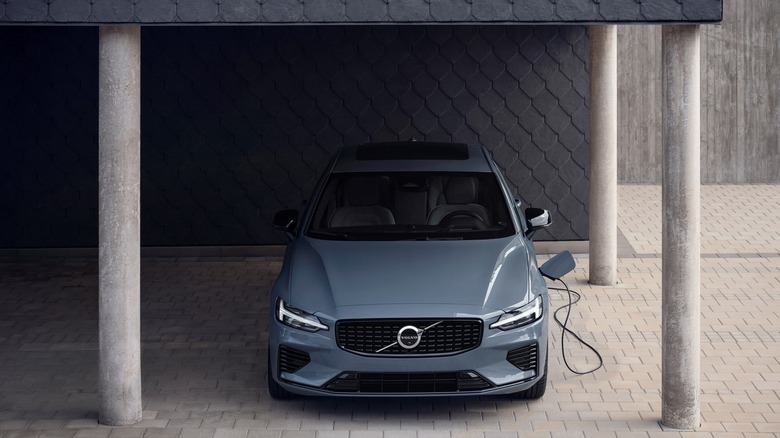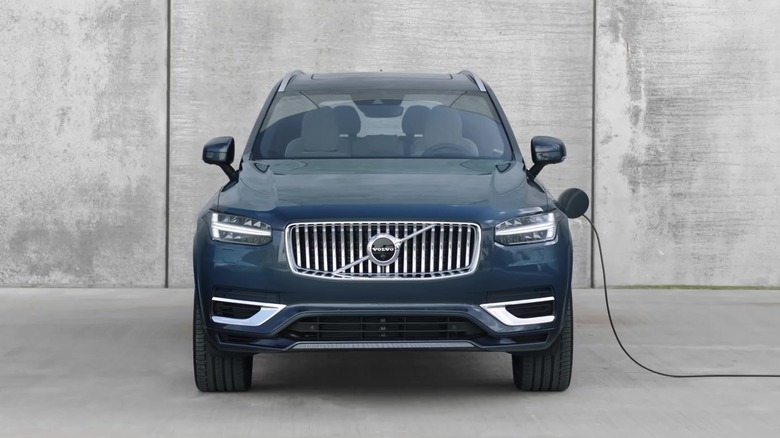Nearly 7,500 Volvo Plug-In Hybrid Owners Told Not To Plug In Due To Fire Risk
The National Highway Traffic Safety Administration (NHTSA) released a bulletin last week advising owners of some model year 2020 through 2022 Volvo plug-in hybrid vehicles against charging their vehicles due to the potential risk of a battery fire. The models potentially affected by the elevated fire risk and thus included in the recall are 7,483 2020-2021 Volvo S90s, 2020-2022 Volvo S60s, V60s, XC60s, XC90s, and 2022 V90s. The bulletin states that the high-voltage battery may experience a short circuit within the battery module when the battery is fully charged and the vehicle is parked, leading to a "thermal event."
Volvo is aware of two incidents that occurred as a result of the issue, neither of which resulted in injuries, crashes, or fatalities. The first "thermal event" was reported on February 6, 2024, and the Swedish automaker conducted an investigation into the potentially deadly phenomenon that concluded earlier this month, leading to the recall issuance.
Here's what to do if your car is affected
To know if your specific vehicle is affected by this, or any recall, run your vehicle's 17-digit VIN through the NHTSA's VIN lookup tool. If you are the owner of a Volvo plug-in hybrid that's included in the recall, you can expect to receive an official notification of your vehicle's recall around the middle of May. Owners are advised against charging their vehicles up until a Volvo dealer has inspected the vehicle and a software update has been performed.
The high-voltage LG batteries used in these Volvo plug-in hybrids may experience an internal short circuit within certain battery cells that may lead to thermal runaway. Volvo identified a production deviation within the battery module that could be the cause, according to Carscoops. Dealers will conduct an inspection to identify cell deviations within the battery module, and if any deviations are found, Volvo will replace the module free of charge, and a software update will be performed to all vehicles included in the recall to monitor the battery module.

